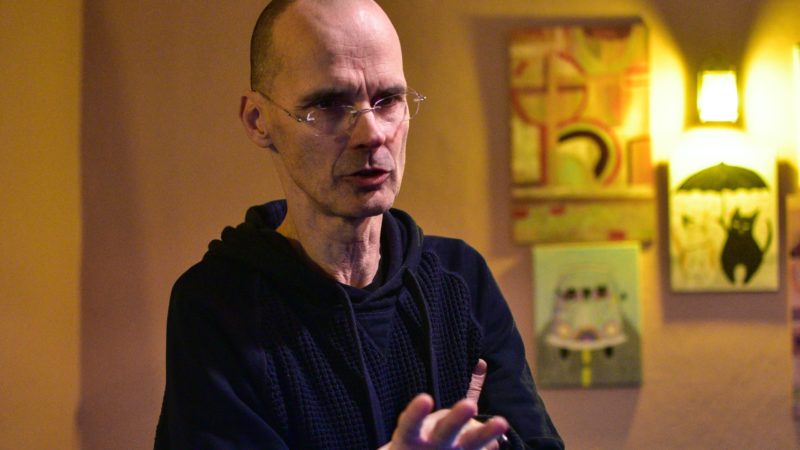Legal sociologist Zoltán Fleck, a teacher at ELTE-ÁJK, delighted the followers who dreamed of a change of government with fire and iron with a marathon interview. You know, he is one of those liberal intellectuals who has been able to announce for a long time in this authoritarian scumbag that it would be desirable to suspend the rule of law in the event of an opposition victory.
In a two-part interview with Hírklikk published on May 1st and 2nd in an article published before that on Élet és Irodalom, he analyzes at length why, how and when the opposition coalition that will soon come to power without a two-thirds majority should get rid of the basic law. The answer to the last question is summed up in the title of the interview: immediately.
But let's go back to Democracy! published at the end of April, in which he states:
The regime has consciously organized itself in such a way as to degrade the political election into an unimportant moment, even if it loses the elections, it does not have to fear the loss of power. This is the highest level of denial of democracy: the total disregard of the voters' will.
It logically follows from this that the Orbán government, which has been elected for the third time since 2010 with a two-thirds democratic majority, ignores the will of the electorate, whereas if the opposition coalition were to come to power in 2022 without a qualified majority, then the first step would be to throw the constitution out the window - the legal scholar according to his proposal—well, that would be democratic heaven itself; for the greater glory of the will of the electorate.
But it is also easy to identify the state of mind that prompts someone to write such a sentence:
The regime never hid that it was not based on democratic change management, but on a long-term arrangement.
According to them, the democratic exercise of power can only be realized in a country if different politicians give each other the door handle every four years? If only the moment counts? But what about the constituents Fleck values? What happens if a course is chosen for the second or third time? And if the people choose this course again and again precisely because they trust it based on its results and want a predictable future? For peace of mind, financial security, construction? In this case, where is democracy?
Then the jurist seems to get a little confused in the explanation of populism when he explains the difference (?) between conservative (bad) and liberal (good) populism.
No matter how great the tension between populism and constitutionalism, popular sovereignty is the ultimate source of legitimacy. Reference to the people does not always lead to anti-liberal populism. If the opposition coalition referring to democracy takes popular sovereignty seriously, it can use this very thing to build a rule of law.
In a word, populism is good if it brings them to power, and of course this leads directly to the kind of social criticism that gives anyone who knows a little history the chills, no matter how attractively it is repackaged. "Comrades, you have an easy job - but I have to build socialism with nine million fascists." Do we remember this? The quoted sentence was uttered by Mátyás Rákosi, back in the early 1950s, in the Kremlin, at a closed meeting of the Communist party leaders of Central and Eastern Europe.
So, in both his article and his interview, Zoltán Fleck points out that "the cause of the current and many previous Hungarian crises is, among other things, the minimal participation, the lack of democracy".
They were able to destroy the rule of law because the rule of law did not have democratic support. Which means that the involvement of voters in the processes is at an amazingly low level. Of course, this is mostly true for all democracies, but stable democracies tolerate such deficits better.
We get it, right? In all democracies, the involvement of voters in the processes is at an amazingly low level, but this is not a problem elsewhere, because they are "stable". I don't even know, so I suddenly think of French democracy, where generals and military leaders can now expect severe retorts for daring to express an opinion in an open letter. Where the throats of random men and women are cut in the open street, or beheaded in churches, where policemen are murdered, and where Michel Houellebecq, the author of Submission writes about his own country that "if a country - a society, a civilization - legalizes the euthanasia, in my eyes it loses all decency. After that, its destruction will not only be legal, but even desirable, so that something else - another country, another society, another civilization - has a chance to rise."
These are harsh words, but normality rightly feels they are justified.
Then Fleck continues:
... Hungarian society is not used to this kind of thing, in fact, it can be very easily manipulated with all kinds of fake consultations and billboards... For this, all kinds of pedagogical tools will have to be mobilized, but we don't have enough time for the younger generations to slowly learn it in schools, on the contrary: this is now relatively it must be done quickly. That is why I suggested that this transition, which is happening now, will be characterized by that certain involvement.
And then he reveals what he means by "certain involvement": civic activity!
Why voters should be replaced by "civilians" is a mystery, or maybe not so much after all. After all, Hungarian history provides an analogy for this as well; On August 31, 1947, about 12,000 people, each with 17-20 blue tickets in their pockets, "helped the people's democracy" and served the "good cause" by sitting on the platform of the cars, where there were also a few bottles of wine, and cast their votes. . Again and again. In terms of their spiritual constitution, they were like today's "civilians".

Legal sociologist Zoltán Fleck receives the Free Press Award from György Földes, the president of the Free Press Foundation. Prime Minister Ferenc Gyurcsány to the right. MTI Photo: Attila Kovács
But what is even more important: the blue card voting in 1947 had an impact on the first free election in 1990, where only 64 percent of the citizens showed up. They were like - why? But it also influenced those who committed it, thinking that it is possible, free, and even necessary to lie! For the sake of a "good" goal... And this was not simply ingrained in an entire generation, but also produced a type of person that cannot be gotten rid of, even with a change of regime. Zoltán Fleck is like that too, he represents this type of person. This is how we stand. Because, unfortunately, seventy years were not enough to eradicate the kind of mentality according to which: whoever does not vote for us cannot be a democrat .













